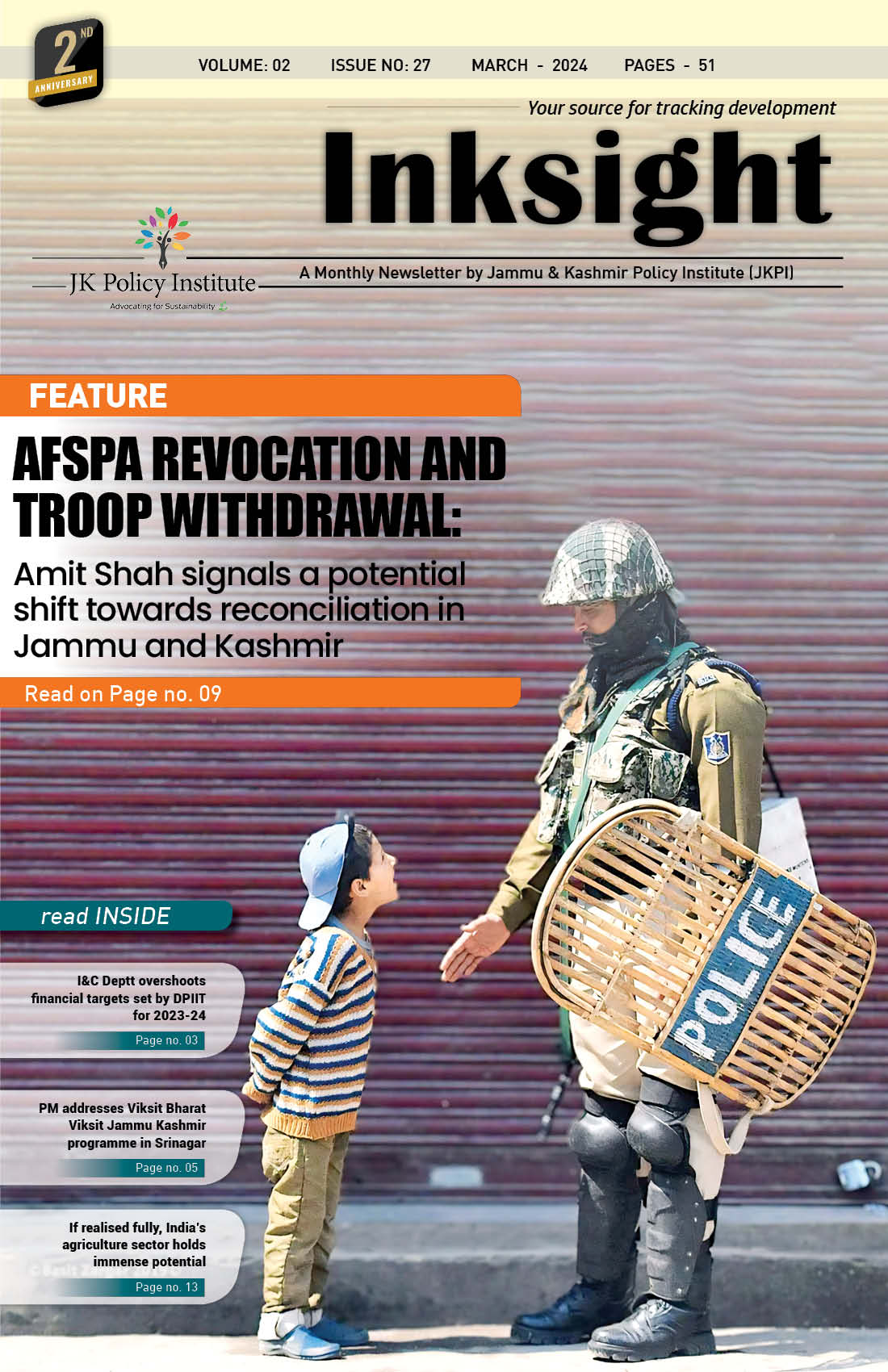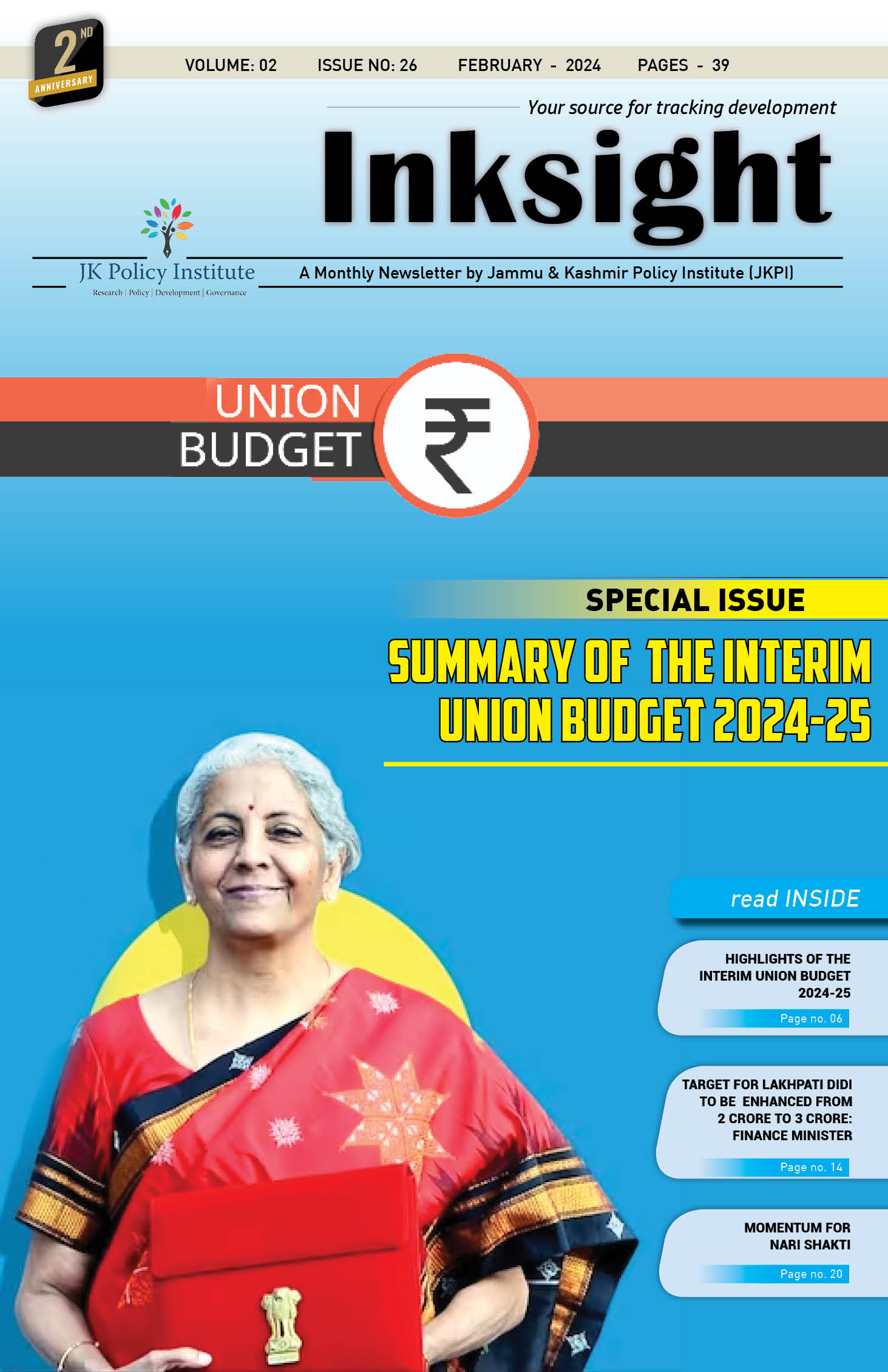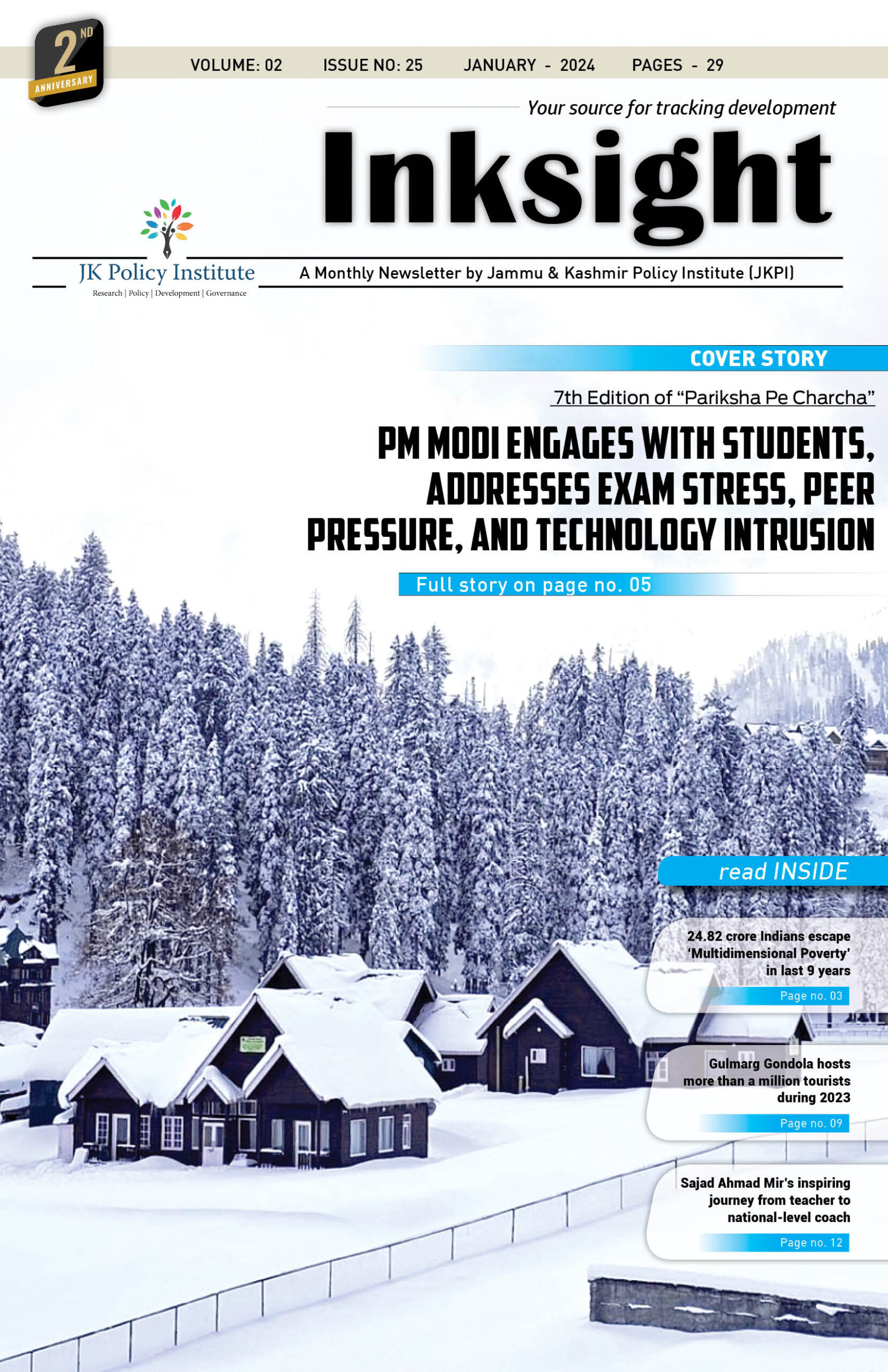The end of the Cold War era had created an elbow room for nations to change their approach whilst dealing with threats of traditional and non-traditional nature. Food, climate and water security are some of the non-traditional security areas that are seen as a potential threat or “threat multiplier” by the state. These non-traditional security threats can further exacerbate the political, social, or economic setting of a nation as we are witnessing currently in the world. This play-off between the traditional and non-traditional security challenges is evident in the geopolitical crisis in South Asia and beyond.
A food security crisis can be a potential threat to a nation in situations where the food supply is obstructed intentionally by the State or non-state actors. Last year, the Assad regime proclaimed the “kneel or starve” policy in Syria, which exhibits that food insecurity could upend the status quo of a government. The protracted hostilities in the Sub- Saharan African region have also led to chronic food insecurity while the majority of people in Africa belong to low-income families due to which they are unable to meet basic necessities like food.
Consequently, youth are susceptible to being influenced and recruited by terrorist organizations like Boko Haram and ISIS. Henceforth, it becomes easy for terrorist organisations to lure victims of food crisis by offering them incentives including food. As a result, when people start losing trust in the state, they look for other options to satisfy their needs and, unfortunately, it becomes difficult to enunciate morality when there isn’t enough food to eat. Considering the above context, the food crisis in Sri Lanka could become a “threat multiplier” if appropriate solutions are not put in place.
The Ukraine war is a case in point which was flagged by many including UN Secretary-General Antonio Guterres as a ticking bomb for the food crisis. Russia and Ukraine export almost a quarter of the world’s wheat and barley and nearly 70% of the sunflower oil. 45% of Sri Lanka’s wheat imports and more than 50% of peas, sunflower oil, soybeans, and seeds, and purchase of other significant intermediate goods like copper, steel, iron and potassium chloride for fertilisers are sourced from Russia and Ukraine. The food crisis accompanied by the acute shortage of gas and kerosene oil, and extreme dependency on imports have exacerbated the crisis. Consequently, the disturbance in supply chains and Sri Lanka’s already worsening foreign reserves from the pandemic-induced slowdown has taken a toll on Colombo with foreign debts of $8.6 billion and the most severe food crisis since independence.
Food Security Crisis in Sri Lanka
Over six million people or over 28 per cent of Sri Lanka’s population are “food insecure” and this situation is likely to deteriorate as the crisis unfolds in the island nation which is grappling with its worst economic crisis, the World Food Programme has said. Analysing the reasons that steered Sri Lanka to its current crisis would point to inefficient governance and poor policy decisions of the central administration. The first political blunder was the abrupt ban on chemical fertilizers in a bid to adopt organic farming. The decision lacked long-term vision as 90% of Sri Lankan were highly dependent on chemical fertilizers, which in turn impinged on the production of rice, the staple crop of the island country, and the key export crops like tea, coconut, and rubber. Consequently, the high dependence on food imports of wheat flour, milk powder, lentils, tea, and rice incur a debt of $50 billion, totalling a disastrous 15.9% of the GDP.
According to T Vijay Kumar, ex-officio chief secretary, Natural Farming, Andhra Pradesh, it takes more than 3-5 yrs. to adopt organic farming in a nation and is normally executed in different phases rather than implemented without breaks. Although the ban was lifted within 6 months, substantial damage was already done by that time. Sri Lanka, for a long time, was self-sufficient in the production of rice. According to the US Department of Agriculture, the production of rice has decreased from 3.39 million tonnes in 2020-2021 to 2.92 million tonnes in 2021-2022 and the imports stood at 147000 tonnes in 2020-2021 while it is 650000 tonnes from 2021 to 2022 and these figures came at a period when most of the land in Sri Lanka was utilized for the production of rice. The fall in the output of rice was observed by critics after the ban on chemical fertilizers. Though the ban was an attempt from the government to reduce its import of fertilizers, the decision was taken hastily without comprehending its detrimental effects on the yield of rice.
High inflationary trends at 56.4 percent sparked by the food crisis rendered almost 25% of Sri Lanka’s population requiring immediate food assistance. According to the World Food Programme, 86 per cent of households are resorting to methods like reducing food consumption or missing out on meals on a particular day to grapple with food crises. According to the UN Resident Coordinator in Sri Lanka, Hanna Singer-Hamdy stated that almost 25% of Sri Lanka’s population requires immediate food assistance. According to the figures released by the Department of Census and Statistics, food Inflation jumped to 57.4% in May from 46.6% in April and the food crisis concomitant with the energy crisis has added fuel to the fire.
Another crisis in waiting was the borrowing pattern of the island country which is categorised as a lower middle-income country. Although borrowing from abroad isn’t novel for Sri Lanka, earlier debts incurred were at low-interest rates and obligated to be paid off in a window of 25 to 40 years. The high incidence of International Sovereign Bonds and commercial loans left foreign debt unmanageable wherein Colombo needed to repay short-term loans of five to 10 years at higher interests. According to the Central Bank of Sri Lanka, the debt to GDP ratio significantly increased from 30 percent in 2014 to 101 percent of GDP in 2020. Further, not taking cognizance of its declining trade levels, down from 33 percent in 2000 to 13 percent in 2019 and the ever-increasing reliance on foreign debt generated the economic rut that we see in Colombo today.
There was an upsurge in the forex reserves of Sri Lanka in May 2022. It rose from $1,81 billion in April to $1.92 billion in May as there was a flow of credit from India under the Asian Clearing Union. However, the foreign reserves of Sri Lanka reduced in totality as it was $ 2.3 billion in February 2022 and by March it had plunged to $ 1.93 billion, Though, the Covid-19 effectuated the economic crisis globally and Sri Lanka was no exception. The tourism sector and tea which were instrumental in attracting foreign exchanges to Sri Lanka were negatively affected and so was its contribution to Sri Lanka’s GDP. According to the data from the World Travel and Tourism Council, Sri Lanka’s tourism business contributed 10.4% of its GDP in 2019 and it tumbled to 4.9% in 2020.
Conclusion
At this juncture, it is clear that the solution to the current crisis lies in a well-balanced scheme of free market ideology and welfarism in policy planning. Restructuring the economy as per the IMF guidelines would take months to show results, however, it is the only external option for #SriLanka to start dealing with the worst economic crisis that the country is facing since its independence from Britain in 1948. In the unravelling political crisis, an expert committee must be constituted involving different stakeholders with all-party consensus to frame a long-term strategy in closing the gaps between the harvest period, intensifying the production of rice and other food crops, and incentivising exports to earn foreign currency. In the meantime, immediate measures like the reformation of policies on the fishing industry as fish is a valuable protein option would provide immediate relief to crisis-induced starvation and malnutrition. As foreign debt becomes the mainstay, the committee needs to devise policies that assist Sri Lanka to raise its domestic production. Foreign aid and lines of credit must be put to use in securing fuel and gas as interim relief.
REFERENCES





Leave a Reply
You must belogged in to post a comment.